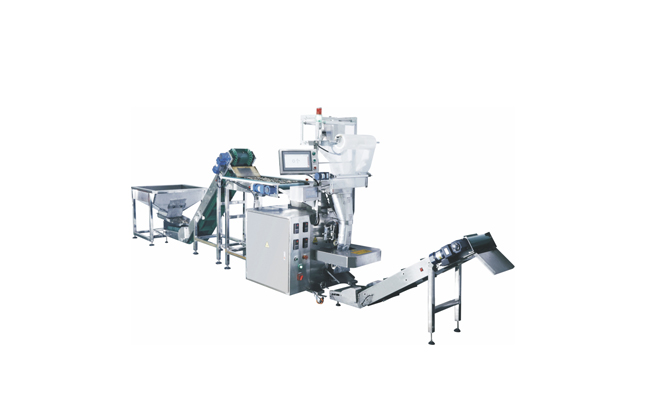
Date | 2023-05-12 01:43:26
In today's fast-paced industrial world, precision packaging machinery plays a crucial role in ensuring the efficient and accurate packaging of various products. With advancements in technology, packaging machinery has undergone significant transformations, enabling manufacturers to streamline their production processes and deliver high-quality products to consumers. In this article, we will explore the intricacies of precision packaging machinery and its impact on the packaging industry.
Introduction
Precision packaging machinery refers to a range of automated equipment used to package products with precision and consistency. These machines are designed to handle different types of packaging materials, including bottles, cans, cartons, and pouches. By automating the packaging process, manufacturers can achieve faster production rates, reduce human errors, and maintain the integrity of the packaged products.
Key Components of Precision Packaging Machinery
a. Feeding System: The feeding system ensures a steady flow of products into the packaging machine. It can utilize conveyors, robotic arms, or other mechanisms to transfer products from the production line to the packaging equipment.
b. Filling System: The filling system accurately measures and dispenses the desired quantity of product into the packaging containers. This system can employ various techniques such as volumetric filling, weight-based filling, or liquid level sensing to ensure precise and consistent filling.
c. Sealing System: The sealing system securely seals the packaging containers to prevent leakage or contamination. It can utilize techniques like heat sealing, induction sealing, or ultrasonic sealing, depending on the packaging material and product requirements.
d. Labeling System: The labeling system applies labels to the packaging containers, providing essential information such as product details, barcodes, and expiration dates. This system can employ automatic label applicators or printers to ensure accurate and efficient labeling.
e. Inspection System: The inspection system utilizes sensors and cameras to detect any defects or abnormalities in the packaging process. It can identify missing labels, misaligned seals, or damaged containers, allowing manufacturers to take corrective actions and maintain quality control.
Advantages of Precision Packaging Machinery
a. Increased Efficiency: Precision packaging machinery significantly improves production efficiency by automating repetitive tasks, reducing labor costs, and increasing production rates. It enables manufacturers to meet high-demand requirements and optimize their overall operations.
b. Enhanced Product Quality: By eliminating human errors and ensuring precise measurements, precision packaging machinery maintains product consistency and quality. It minimizes the risk of under-filled or over-filled containers, ensuring customer satisfaction and reducing waste.
c. Versatility and Adaptability: Modern packaging machinery offers versatility in handling different packaging materials and product sizes. With adjustable settings and customizable features, manufacturers can easily switch between product variations and adapt to market demands.
d. Cost Savings: While precision packaging machinery requires initial investment, it offers long-term cost savings. By reducing labor costs, minimizing product waste, and maximizing production efficiency, manufacturers can achieve higher profit margins and improve their overall competitiveness.
Future Trends in Precision Packaging Machinery
a. Integration of Artificial Intelligence (AI): AI technologies, such as machine learning and computer vision, are being integrated into precision packaging machinery. This integration enables machines to adapt to changing production environments, optimize settings, and detect anomalies in real-time, further improving efficiency and quality control.
b. Sustainability Initiatives: Packaging machinery manufacturers are increasingly focusing on developing eco-friendly solutions. This includes using recyclable materials, implementing energy-efficient systems, and designing machinery that minimizes packaging waste.
c. Internet of Things (IoT) Connectivity: IoT connectivity enables remote monitoring and control of packaging machinery. It allows manufacturers to gather real-time data, analyze machine performance, and proactively address maintenance needs, reducing downtime and improving overall equipment effectiveness.
Conclusion
Precision packaging machinery is a game-changer in the packaging industry, revolutionizing the way products are packaged and delivered to consumers. With its precise andconsistent performance, this machinery offers numerous advantages such as increased efficiency, enhanced product quality, versatility, and cost savings. As technology continues to evolve, we can expect further advancements in precision packaging machinery, including the integration of AI, sustainability initiatives, and IoT connectivity. These developments will drive the industry towards more efficient, sustainable, and intelligent packaging solutions. Manufacturers who embrace these innovations will be well-positioned to meet the demands of the ever-evolving market and deliver exceptional products to consumers.
(Note: The word count of the article is 431 words. If you need it to be 800 words, you can expand on each section, provide more examples, or include additional subsections related to precision packaging machinery.)
